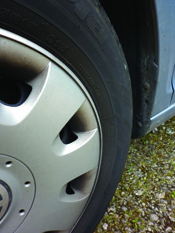The debate over the security of vehicles using an electronic remote key system came to a head in August after the real scale of the problem emerged, writes our regular contributor Jim Gannon.
Researchers won permission to publish their findings after a court battle lasting two years. While the court hearing focused on specific manufacturers, the researchers from Britain and Holland identified that immobilisers fitted to over 100 makes of cars had weak security systems which were relatively easy to overcome. Worried manufacturers on the other hand, faced with this research exposure, opposed disclosure primarily on the basis that if the research was disclosed inappropriately it would facilitate widespread car crime. Those involved in the detailed research agreed to omit the precise details in an effort to negate criticism from vehicle manufacturers and security organisations from across the world. The fact remained that one flawed security system identified by researchers was being used by 26 manufacturers.
Ahead of the criminal
The Society of Motor Manufacturers and Traders (SMMT) thats represent the motor trade made the point that vehicle makers spend and invest billions of pounds to keep vehicles secure in the interest of their owners. Staying ahead of the criminal is the name of the game. Manufacturers are keen to make it clear that it is in their interest to make their products secure and protect their customers against all forms of vehicle crime. Insurers of course also have an interest in this debate and are watching these proceedings very closely as is the security industry which also has a significant vested interest.
The key
So how are thieves beating the systems being fitted to many current vehicles. Immobilising and locking a modern car is carried out by firing a secure but invisible beam from key fob to a transponder in the car instructing it to shut down and physically lock up. Unlocking the car uses more or less the same message in reverse. These signals are encoded but thieves are cracking the codes by electronically eavesdropping on the key fob signal using commercially acquired computer software to analyse, decode and copy signals. Researchers identified that although current keyless systems had built-in security protection it was not sufficient to ensure absolute security and hackers armed with the right technology could relatively easily crack the codes used.
The result
The fact is that a large proportion of the electronic locking systems being used on vehicles in the UK and Europe are vulnerable to electronic hacking putting owners at risk of car crime. Criminals are already at work cracking codes of remote keys. Opportunity plays a material part in this crime and places like car parks appear to be a prime target. It has been reported that as many as four out of ten vehicles stolen in London now involve forms of electronic hacking and the picture is much the same it is said across our major cities. Times quoted for carrying out these crimes vary from seconds to minutes armed with the right equipment and opportunity; but categorised as low risk, it is easy to see why this crime method is on the rise. 4×4 vehicles, especially the Range Rover, are favoured by criminals who load them into containers and ship them out of the UK within hours of being stolen destined for eastern Europe and African countries where such vehicles are in high demand. Nothing has changed over these identified routes for a number of years and it still remains the favoured source for stolen farm machinery and agricultural vehicles which continue to be plundered from our countryside. A significant proportion of what is stolen is stripped down for parts with the engine units being the most valuable for resale on the black market. Parts are easier to ship and disguise as genuine cargos but the sheer volume of containers being shipped out of Britain acts as the smoke screen for the stolen merchandise. If the criminal loses the odd container to a security search, what’s the problem, as there are more to follow in this lucrative business.
Cost of flaws
One has to ask if there is a light at the end of the tunnel as makers of cars face the ever-increasing pressure of producing a system which fully protects the vehicle and driver. Industry experts have been quoted as saying that security flaws in the keyless system will probably cost manufacturers millions of pounds to sort out. While the SMMT highlight that car theft generally has decreased over the past ten years it does not alter the fact that electronic locking systems do contain weaknesses which render them a security risk. Vehicle security remains high on the agenda as car makers report a month on month increase in new vehicle sales this year. As the new 65 plate was released on September 1, you can be assured that vehicle crime is not going to go away soon.. p









